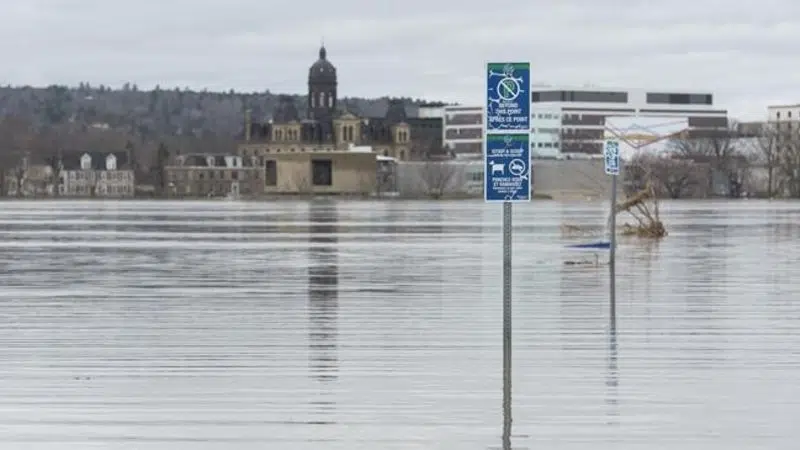
Rising Saint John River frustrating swath of southern New Brunswick
FREDERICTON — Thane Mallory says the picturesque water view out the back window is what keeps him going back every day to Gulliver’s World Cafe, his restaurant in Gagetown, N.B.
“I wake up every morning and look out the back window and I say, that’s beautiful,” Mallory said Wednesday. “That love affair kind of ends this time of year when I look outside.”
The 1887-era building is normally about 20 metres from the water’s edge. On Wednesday, debris-filled flood water lapped against the building.
